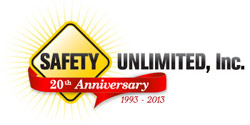moc.detimilnuytefas@nullofni
1-888-309-SAFE (7233)
This Vinyl Chloride Awareness course provides a general awareness of the risks and the regulatory requirements for protecting employees who work in the manufacture, reaction, packaging, repackaging, storage, handling, or use of vinyl chloride, as required by OSHA.
Vinyl Chloride is a colorless gas with a mild, sweet odor that burns easily. It does not occur naturally and must be produced industrially for its commercial uses. It ranks in the top 20 chemicals for production volume with about 13 billion kilograms produced annually, the U.S. being the world’s largest manufacturer of the chemical. It is used primarily to make polyvinyl chloride (PVC), a familiar substance with many uses. Vinyl chloride is highly toxic, flammable, and carcinogenic. Vinyl chloride that is released by industry, or formed by the breakdown of other chlorinated chemicals, can enter the air and drinking water supplies, and is a common contaminant found near landfills; vinyl chloride has been found in more than one third of the most hazardous waste sites identified by the EPA and targeted for long-term federal clean up activities. It is also produced as a combustion product in tobacco smoke.
Vinyl Chloride is highly toxic. It is a human carcinogen with consistent evidence for liver cancer in all studies. Vinyl chloride exposure is associated with an increased risk of a rare form of liver cancer, as well as brain and lung cancers, lymphoma, and leukemia. Chronic exposure causes symptoms such as a narcotic effect and depression, decreased male libido, cardiac arrhythmias, and can lead to fatal respiratory failure and focused liver toxicity, as well as spontaneous abortion and birth defects. Vinyl chloride is also a mutagen, affecting the chromosomal structure of lymphocytes.
Per the California Department of Public Health, Safety Unlimited, Inc. is authorized to offer 1 Contact Hour (0.1 CEUs) of Continuing Education (CE) for this program.
While these CE units are intended for Registered Environmental Health Specialists (REHS) in California, they are often transferred to other accrediting bodies. Please check with your specific agency for more details and to learn if your agency accepts this course for CE credit (Public Health Accreditation #044).
Safety Unlimited, Inc. is authorized by IACET to offer 1 Contact Hour (0.1 CEUs) of Continuing Education (CE) for this program.
Safety Unlimited, Inc. (Provider #5660170-2) is accredited by the International Association for Continuing Education and Training (IACET). Safety Unlimited, Inc. complies with the ANSI/IACET Standard, which is recognized internationally as a standard of excellence in instructional practices. As a result of this accreditation, Safety Unlimited, Inc. is accredited to issue the IACET CEU. As an IACET Accredited Provider, Safety Unlimited, Inc. offers CEUs for its programs that qualify under the ANSI/IACET Standard.
This fully narrated course is built for success, and includes interactions, exercises, and quiz questions intended to help prepare students for the final exam. Students must answer each quiz question and complete each interaction in order to proceed.
This course has one final exam based upon the material in the 3 course sections. The exam consists of 10 questions selected at random from a larger pool of questions. A score of 70% or better is required to pass each exam. Students who do not pass the exam the first time may retake it as many times as necessary in order to pass.
The objective of this Vinyl Chloride Awareness course is to provide a general awareness of the risks and the regulatory requirements for protecting employees who work in the manufacture, reaction, packaging, repackaging, storage, handling, or use of vinyl chloride, as required by OSHA.
The course will also introduce students to the Occupational Safety and Health Regulations for Vinyl Chloride, Subpart Z, Toxic and Hazardous Substances - 29 CFR 1910.1017
Upon completion of this course, the student will be able to:
Each employee covered by the Vinyl Chloride Standard must be trained to demonstrate knowledge and understanding of at least the following:
Additionally, workers must receive training, when required by OSHA standards, on the specific hazards of their job. Training Providers should be used to ensure credibility and augment a company’s training program. Therefore, in addition to the training provided by an outside party, a student should receive site-specific training supplied by their employer. This training should target the company’s unique approach to hazard prevention, including the use of site-specific equipment, health and safety policies, and emergency procedures. As a rule, this company-specific training should be well documented.
We're Celebrating 20 Years With 20% Off our most popular online training. No coupon code necessary!
